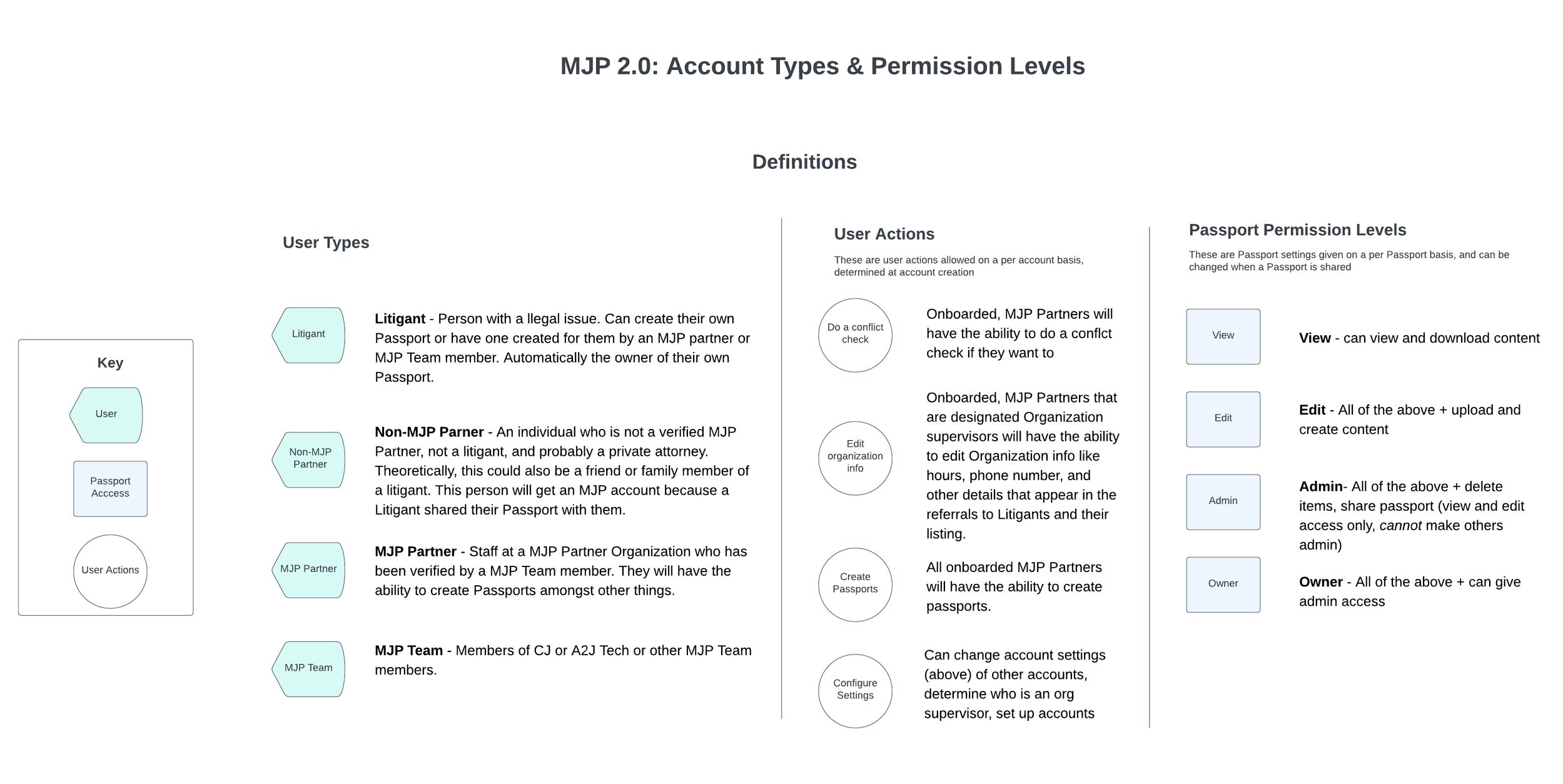Maryland Justice Passport Platform Redesign
A single platform for Maryland residents to contact legal service providers and manage their casework. Each user’s account, their “Passport,” includes a description of their legal issue, legal aid organization referrals, a next steps checklist, and a place to upload and store their documentation.
Client
Civil Justice, Inc & A2J Tech
Timeline
NOV. 2022 - JUNE 2023
Role
UI/UX Designer, Product Designer
Team
Triana Kalmanoff, Devan Kreitzer, Victoria Pan, Ritica Ramesh
User Research
User research conducted in 2021 revealed usability issues within the platform.
Trouble with navigation, including significant challenges finding the right button to share their individual Passport with providers (partnered lawyers) or other users (ex: private attorney’s, family, and friends)
Lawyers requested a more streamlined experience
User uncertainty regarding ultimate purpose of platform
Problem Statement
How can we streamline the most crucial tools of Maryland Justice Passport to enhance navigation for and among litigants and lawyers?
Develop technology to provide relevant notes for each user’s unique case
Automate gathering feedback from litigants
Long term: develop a new platform that will enable the team to make continuous enhancements without a proprietary third-party platform
Team Proposed Solutions
These proposed solutions were created collectively by the A2J team of developers, UX designers, and the Civil Justice team.
Automate text message confirmations after user set up
Create a directory of legal aid providers for easy referrals
Continue implementing conflict check tool with partners
Usability Flow
An important part of navigating Passport usability was figuring out permission levels for different types of users.
We collectively made the decision that only litigants get Passports, which includes a description of their legal issue, legal aid organization referrals, a next steps checklist, and a place to upload and store their documentation.
Design Iterations
I created product visualizations by sketching and wireframing while keeping usability flows in mind.
Style Guide
Audited legal aid and non-profit websites to assess current trends
Selected blue color palette with yellow and gold accents; serif font accessible for those with vision impairments
Once all designs were approved and each page was usable, we proposed to Civil Justice a change to the current style guide.
Homepage High Fidelity Design Iterations
High Fidelity Prototype
We put together a high-fidelity prototype for the rest of the A2J Tech team to do QA testing before sending it to the Civil Justice team to review and give feedback.
Suggestions included:
Creating a step-by-step demo on how to navigate the pages
Making sure that users were allowed to type in their gender if the drop-down options didn’t include their pronouns
Adjusting the sizing of modals
Findings
A2J Tech advised finding a more sustainable alternative to Bubble due to the complexity of the platform.
Maryland Justice Passport is now on the application development platform, Stacker. Our work informed Stacker’s usability flow, which helped create a more streamlined experience for litigants and lawyers using the Maryland Justice Passport.











